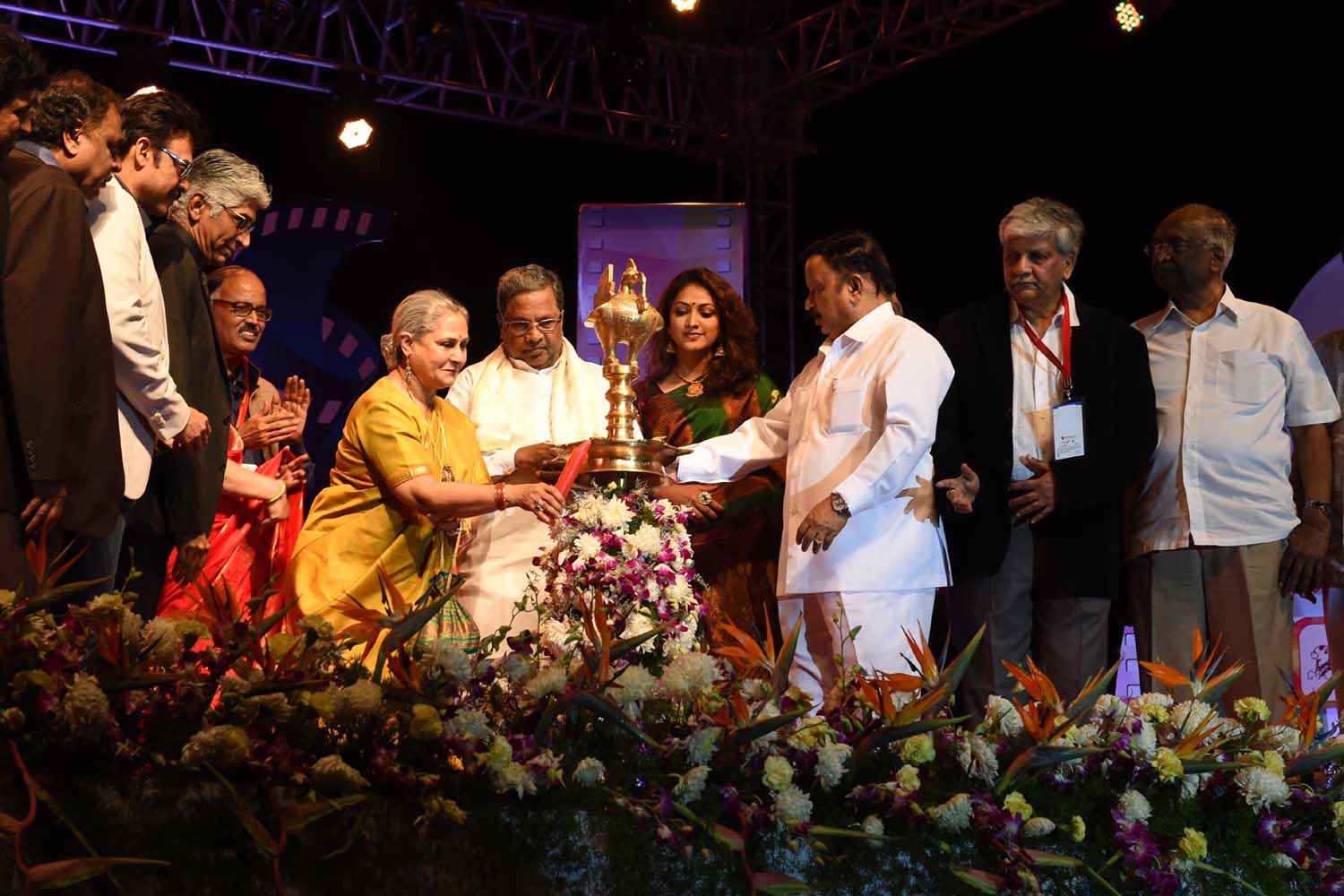The Global INDIAai Summit successfully came to a close today at Bharat Mandapam, New Delhi. Over the last two days, 12 side sessions were organized, which were graced by 2,000 global AI experts, Policy makers, Artificial Intelligence (AI) practitioners, Industry/Startups, and Academia. Over 10,000 AI enthusiasts joined the session virtually. Some additional sessions were held in closed door meetings having delegates and experts of Global Partnership on Artificial Intelligence (GPAI). The side sessions were held in public and live streamed for wider participation.
The key highlights and outcomes of the summit are as follows:
The summit’s registration got oversubscribed. 2,000 AI experts and practitioners attended the sessions physically and the virtual participation crossed 10,000.
Each session saw in-depth and insightful discussion on several aspects, that included key challenges in implementation, the available western model, India’s unique need in shaping its AI discourse for meeting its domestic demand and for attaining the global AI leadership.
India set the global discourse by emphasizing the intent of the Government to democratize AI and make it accessible to all.
Sessions on the key pillars of INDIAai Mission demonstrated India’s planned action and commitment to build an inclusive and robust AI ecosystem in the country and lead the global AI innovation.
The Global South countries acknowledged and appreciated the role of India to give voice to them at the global AI forum and bridge the gap with Global North.
The convening of Collaborative AI on Global Partnership (CAIGP) brought together GPAI members, AI experts and industry representatives to identify mechanisms to overcome the global AI divide.
The OECD – OCDE and GPAI announced a new integrated partnership on AI at New Delhi.
The GPAI members came to a consensus about the future vision of Global Partnership on Artificial Intelligence. Some of the key points included in the future vision are as follows:
Recognise the transformative potential of AI in shaping the future of our societies and economies
Acknowledge the emerging risks and challenges posed by AI systems
Share a commitment to fostering trustworthy and human-centric AI
Reaffirm the collective commitment to the OECD Recommendation on AI and the UNESCO Recommendation on the Ethics of AI
Recall that the GPAI has been a unique initiative for global multi stakeholder cooperation on AI
Recognise the New Delhi 2023 GPAI Ministerial Declaration, where GPAI’s unique and independent identity is emphasized as a nodal initiative that plays a key role in global cooperation on AI innovation and governance.
Overall, the summit led to in-depth deliberations and resulted in deep insights on several implementation aspects of INDIAai Mission, that inter-alia include (a) Multi-LLM models to meet the diverse need of India, (b) Platformization and standardization of AI ready data (c) Partner ecosystem and multi-stakeholder approach to implement INDIAai Mission from technology, policy, framework, research, industrial, startup, ethical, youth, business, and academic perspectives, and (d) weaving together the strength of India viz. its skilled & talent ecosystem, demand ecosystem, researcher, startup and industrial ecosystems.
The brief of side sessions held today, i.e. the second day of the summit, is as follows:
Side Session 6: IndiaAI: Empowering Talent through AI Education & Skilling
The session began with a keynote by Prof. T G Sitharam, Chairman, AICTE. The session included distinguished panelists, namely Ms. Shweta Khurana, Sr. Director, Intel (Moderator), Mr. Amit Singhee, CTO, IBM, Ms. Joyce Poan, Chief of Education, UNESCO, Mr. Raghav Gupta, Managing Director, India & Asia-Pacific, Coursera, Mr. Prakash Kumar, CEO, Wadhwani Government Digital Transformation, and Mr. Anil Sahasrabudhe, Chairman, NETF.
The discussion covered India’s unique needs and collaboration among industry, public sector and society to build an AI-ready generation in India, emphasizing human intelligence to thrive in an AI-driven world. The need for mutual recognition of certifications was also discussed to ensure the effectiveness of training and skill development initiatives across different regions and countries. The importance of curated and age-appropriate AI learning environments was also covered.
Side Session 7: AI for Global Good: Empowering the Global South
The opening remarks were made by Shri Mahaveer Singhvi, Joint Secretary (NEST Division), Ministry of External Affairs. The keynote was given by Shri S. Krishnan, Secretary, Ministry of Electronics & Information Technology. Shri Sushil Pal, Joint Secretary (International Cooperation Division), MeitY moderated the session. The delegates at the level of Minister, Charge d’Affaires, High Commissioner and Secretary to the respective Government of Brazil, Cuba, Malaysia, South Africa, Namibia, Rwanda, Sri Lanka, Morocco, and Senegal graced the session. The importance of multi-stakeholder dialogue, priority use-cases, compute capacity, open-source tech, AI divide, etc were discussed. The global south countries appreciated the efforts of India to mainstream the global south and represent its interest in the global AI forums.
Side Session 9: IndiaAI: From Seed to Scale- Empowering India’s Startup Ecosystem
The keynote was given by Shri. Amitabh Kant, G20 Sherpa, GoI. The session included distinguished panelists, namely Ms. Chandra R. Srikanth, Deputy Executive Editor, Moneycontrol (Moderator), Mr. Rajan Anandan, MD, Peak XV Partners and Surge, Mr. Raman Ramanathan, Former Mission Director, Atal Innovation Mission, Mr. Mayuresh Raut, Co-Founder and Managing Partner, SeaFund, Mr. Abhishek Upperwal, Founder & CEO, SoketLabs, Mr. Abhinav Aggarwal, Co-founder & CEO, Fluid AI, and Mr. Jayesh Ranjan, Special Chief Secretary, ITE&C and Industries and Commerce Department, Government of Telangana. The discussion highlighted the fact that INDIAai Mission has been approved with an outlay of ₹10,372 crore and out of this, ₹2,000 crore would be utilized towards supporting the Indian startup ecosystem to develop indigenous AI based solutions. The support would also include resolution of issues such as compute, dataset and skills and access to GPU Infrastructure would be made available at subsidized rate. Insights revealed that India has a competitive advantage in AI owing to skills, market and demand. For entrepreneurs, the value creation and return on investment over and above cost will be the key catalyst. INDIAai Mission can lower the cost of innovation and indigenous development.
Side Session 10: IndiaAI: Data Ecosystem
The keynote was given by Dr. Saurabh Garg IAS, Secretary, MoSPI, GoI. The session included distinguished panelists, namely Mr. Manu Chopra, CEO, Karya (Moderator), Mr. Gaurav Godhwani, Co-Founder CivicData labs, Prof. Avik Sarkar, Indian School of Business, Mr. Rahul Kulkarni, Chief Technologist, Samagra, Mr. Sharavan Goli, Strategic Advisor, Coursera and Ms. Kavita Bhatia, COO, IndiaAI. The discussion highlighted the existing legal frameworks in India, and existing dataset platforms maintained by various Ministries of Government of India and the regulators. Insight was emphasized to focus on who is creating data, who is collecting data and who is driving notional and economical value of data, the individual’s interest and national interest.
Side Session 11: AI Competency Framework for Public Sector
The keynote was given by Shri S N Tripathi, Director General, IIPA. The session included distinguished panelists, namely Mr. Rakesh Verma, COO, Karmayogi Bharat (Moderator), Mr. Alkesh Kumar Sharma, Former Secretary, MeitY, Ms. Kirti Seth, CEO-SSC, NASSCOM, Mr. Hezekiel Dlamini, Advisor, UNESCO, and Shri Prakash Kumar, CEO, Wadhwani Centre. The discussion highlighted the existing legal frameworks in India, and existing dataset platforms maintained by various Ministries of GoI and the regulators. The discussion dwelt on covering the population such as deep skilling are imparted to some researchers, application skills for many such as developers and basic skills for everyone. National Education Policy and Global Skill Comparison Framework were also discussed. UNESCO’s ongoing work on AI competency was covered. The aspects of functional competency, domain competency and application competency were also discussed.
Side Session 12: Sustainable Agriculture
In the last session of the summit, the keynote was given jointly by Mr. Rajeev Chawla, Chief Knowledge Officer, MoAFW, GoI and Ms. Inma Martinez, GPAI, MEG Chair. The session included distinguished panelists, namely Mr. Sanjay Uppal, CEO, Finbots.ai, Mr. Praveen Pankajkashan, VP, Cropin, Mr. Mohammed Salman, Sr. Product Manager, Wadhwani AI, Mr. Nipun Marhotra, CEO, The Agri Collaboratory (Moderator), Mr. Sudeep Marwa, Head, ICAR-IASRI, Ms. Sai Gole, Co-Founder, Bharat Agri, Ms. Aviarasi Sundaram, Samunnati and Dr. Trilochan Mohapatra, Former Secretary, DARE and DG, ICAR, GoI. The discussion covered the India’s AgriStack, use of AI in various countries, data driven credit disbursement to farmers and lending of micro-credit up-to USD 10 (roughly Rs 800), the timeliness of Agri information collection and timely action w.r.t. pre-harvest, harvest and post-harvest activities.
Background
The Government of India hosted the ‘Global IndiaAI Summit’ on July 3-4, 2024, in New Delhi. The summit focused on advancing AI development in areas like Compute Capacity, Foundational Models, Datasets, Application Development, Future Skills, Startup Financing, and Safe AI, which are the seven key pillars of IndiaAi Mission. IndiaAi Mission has been approved by the Union Cabinet in March 2024 with the outlay of USD 1.25 Billion.
GPAI is a multi-stakeholder initiative with 29 member countries, which aims to bridge the gap between theory and practice on AI by supporting cutting-edge research and applied activities on AI-related priorities. India is the lead chair of GPAI in 2024. As GPAI’s Lead Chair, India is convening global AI experts to discuss key issues and promote trustworthy AI
…..











Leave a Reply